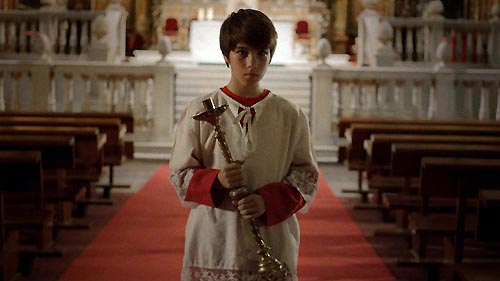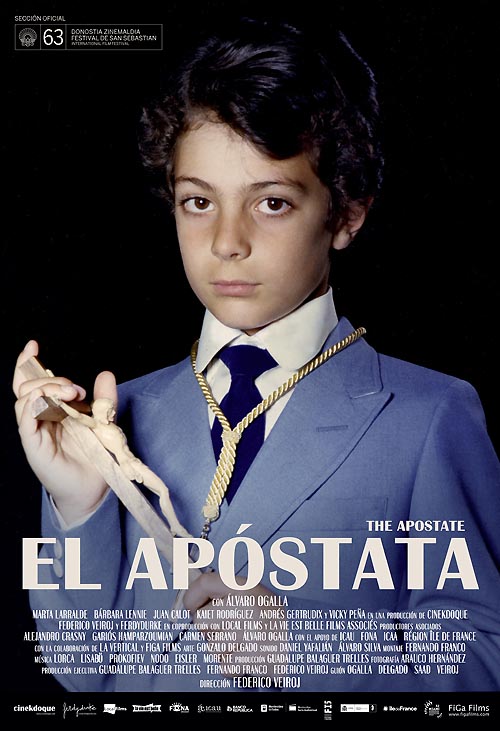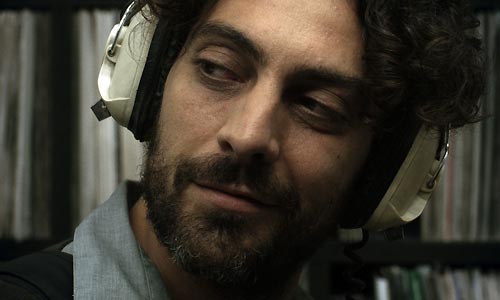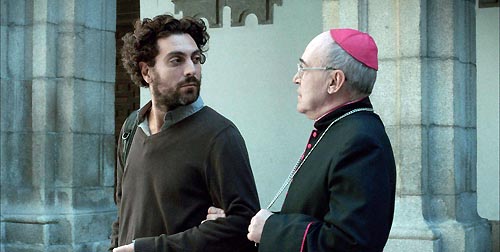
 By Roger Costa
By Roger Costa
Gonzalo, a single man on his 30’s, arrives at a Catholic parish, requesting his baptism certificate to be canceled as he is determined to enter apostasy, renouncing any form of religion or system practices. While there, his intolerance towards the societal rules is reaffirmed as he observes a boy in a silent vow, and a man in a state of self-punishment. Along his journey challenged by bureaucracy and impositions, meeting counselors, priests, family members and a boy whom he befriends, Gonzalo will investigate and justify his decisions while dealing with his own private existential crisis, seeking to set himself free from the institutionalized rules and establish his own practices of living.
A hallucinating and thoughtful satire on moral standards, religious principles and capitalism, “The Apostate” is also an account of a generation wandering around looking for some sort of a mirror, a reflection of themselves, in order to accomplish their unique concepts of living and attach them to the unstoppable transforming modernity. In other words, Gonzalo is an eccentric figure, someone who is relying on destiny to keep him moving, a person who is not expecting much from life, except fulfilling his private desires and natural pleasures.

Directed by Federico Veiroj, one of the most promising directors hailing from Uruguay, the film demonstrates an admirable influence on the aesthetic of Fellini and Bunuel, composing the film with sequences of atmospheric, surrealistic dreams, and contemplative observations on Gonzalo’s questions, doubts and inner conflicts. He also permeates the film with vivid imagination creating a frenetic speed in Gonzalo’s quest for freedom. Despite the fact he wants to be removed from any institution, Gonzalo is also part of the world, and shares the same needs and emotions; then one of his most important goals is to find love. He cultivates a long time passion for his cousin, whom he often secretly sleeps with, and finds an opportunity when she’s dumped by her boyfriend. He also flirts with the mother of Antonio, the kid who lives next door and shares with him moments of wisdom.
Gonzalo is fed up with the rules of system, and on his unique way he will debate and expose his causes, while the director points him to many directions in order to find him comfort for his dilemmas: the philosophical conversations with priests, his estranged relationship with his mother, and his father’s illness, the intensity of the love he preserves for his cousin and other family members’ reactions.

Despite I essentially dislike the whole concept of abandoning Christianity, the film doesn’t cause any harm to religious viewers, as it demonstrates an exclusive purpose of exposing Gonzalo’s eccentric and humane emotions, obviously creating a modern portrait of the Generation Y and the tons of unanswered questions permeating young minds, specially regarding spirituality. Alvaro Ogalla gives a tremendously ambiguous, convincingly complex and darkly funny performance delving into Gonzalo, exploring his loneliness, conflicts and desires with preciseness, giving the film coherent layers of comedy, controversy and romance, as he’s trying to figure out important topics on his life and on his future.
THE APOSTATE (A Breaking Glass Pictures Release. Runs Friday, September 9-16 exclusively at Anthology Film Archives, 32 Second Avenue NYC)



















Comments